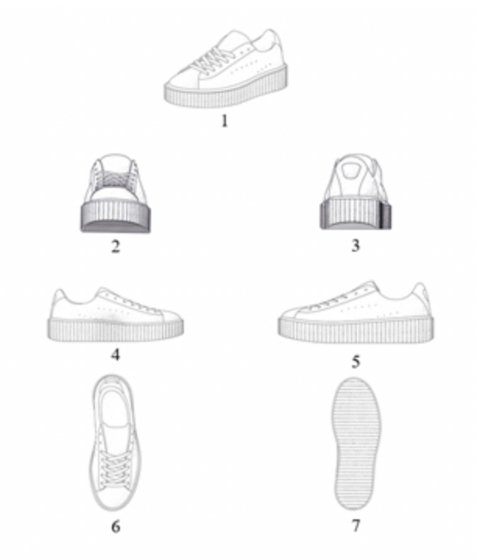In a decision on March 6, 2024 by the European Union General Court, Puma lost its Community design registration for the Creeper sneaker because images of the design were posted on Rihanna's Instagram over a year before Puma applied for registration, thereby invalidating the design due to prior public disclosure.

Source: https://www.thefashionlaw.com/
The Puma case in the European Union offers several valuable lessons for U.S. attorneys, especially those involved in intellectual property (IP) and specifically in the area of design protection. While the legal frameworks differ between the EU and the U.S., the underlying principles and strategic considerations have broad applicability. Here are the key takeaways for U.S. attorneys:
The Puma case shows the critical importance of understanding and managing the timing of public disclosures relative to IP filings. While the U.S. offers a 12-month grace period from the time of public disclosure to filing a patent application, it's crucial to plan and act within this timeframe to avoid losing the ability to protect a design or invention.
This case highlights the significant impact social media can have on intellectual property rights. Attorneys should educate their clients about the risks associated with premature disclosures of designs or inventions on social media platforms, which could potentially start the clock on grace periods or, in jurisdictions without such leniency, disqualify the design from protection altogether.
.webp?width=589&height=493&name=Screen-Shot-2024-03-08-at-8%20(1).webp)
Source: https://www.thefashionlaw.com/
Attorneys should guide clients in balancing the need for early public engagement and marketing with the need to secure IP rights. This may involve developing strategies for confidential or controlled disclosures, filing design patents or trademark registrations before public launches, and advising on how to manage collaborations with celebrities or influencers to maintain control over IP-related disclosures.
For clients operating or planning to operate on a global scale, it's essential to develop a comprehensive IP strategy that considers the legal requirements and practices in all target jurisdictions. The Puma case illustrates how actions taken in one jurisdiction can affect IP rights in another, emphasizing the need for a coordinated approach to IP filings and public disclosures worldwide.
The commentary on the case stresses the importance of early protection for significant designs. This is a universal principle that applies not only in the EU but also in the U.S. and elsewhere. Securing IP protections at the earliest possible stage can provide a critical advantage in a competitive market and prevent future legal challenges.
6. Handling Celebrity Endorsements and Collaborations
When working with celebrities or influencers, it's vital to have clear agreements and understandings about the disclosure of potentially patentable or registrable designs. These agreements should carefully consider the timing of any such disclosures in relation to planned IP filings.
When conducting a prior art search in patent litigation, social media posts and blogs can be a trove of evidence. However, litigators should be diligent in the digital evidence collection process ensuring that any screenshots used as evidence can be properly authenticated. This includes maintaining the chain of custody and including relevant metadata such as timestamps of the posts to establish an accurate timeline.
When using a self-authenticating tool like Page Vault, patent attorneys can quickly capture authenticated screenshots of social media posts along with all metadata needed to establish their case. Given the ephemeral nature of social media posts, it is important that these searches are made proactively and any evidence found is preserved in a timely manner before the posts are deleted.
In essence, the Puma case serves as a cautionary tale for U.S. attorneys and their clients, emphasizing the need for careful planning and strategic foresight in the management of intellectual property and proper digital evidence collection in litigation, especially in the age of social media and global brand presence.